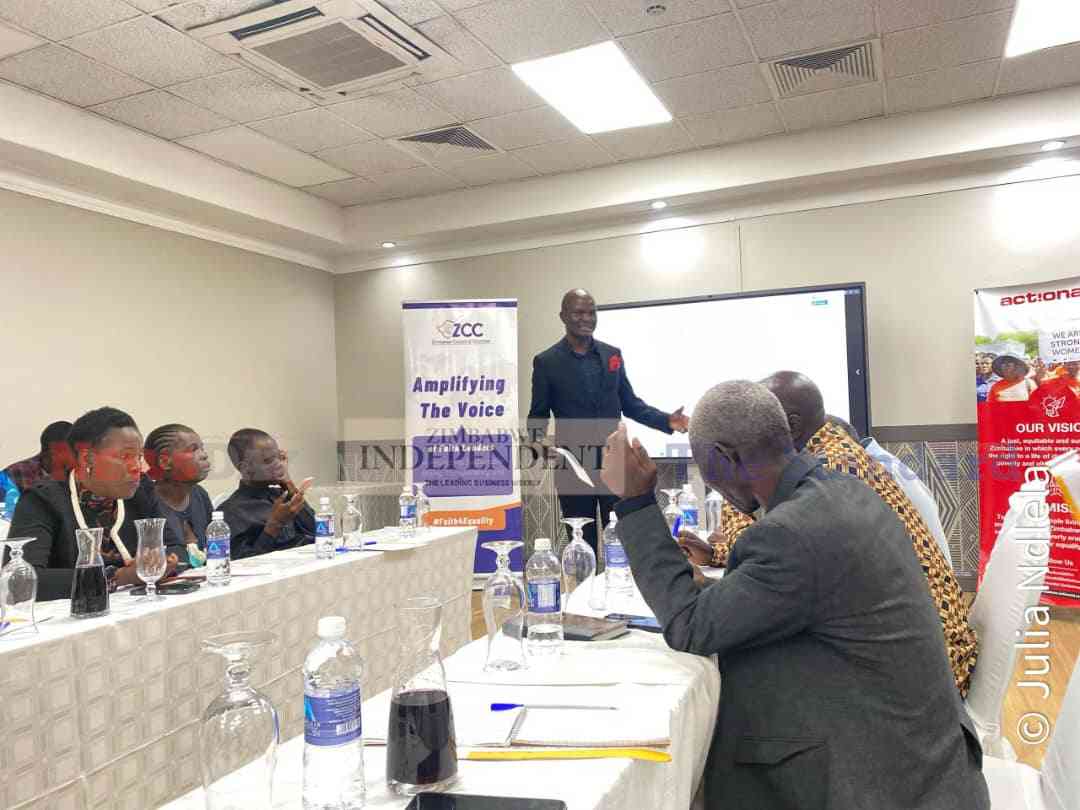
Residents in Goromonzi have called for strict mining regulations and a review of the current fiscal framework, citing ineffective penalties as responsible for pollution and raising concerns about revenue leakages in the district.
The residents argue that mining companies operating in the area are causing significant environmental degradation with little consequence, while the community receives minimal benefits.
The sentiments were shared during a stakeholder engagement meeting hosted by ActionAid Zimbabwe in partnership with Zimbabwe Council of Churches and Publish What You Pay Coalition to come up with an action plan to implement Environmental Sustainability Governance (ESG) at grassroots level.
An environmental monitor from ward 13, Samuel Gamanya, said mining companies were not being penalised adequately for environmental pollution.
“Companies are being penalised by Ema for pollution, but it’s not effective. Mining companies pollute, they pay a small fine and they keep polluting, the penalty doesn’t dent their pockets while people are getting sick and the pollution continues.
“For these big mining companies what they are paying is nothing, they will keep going against the law because the fine is not stiff while people are left to contend with the effects of land degradation,” he said.
Gamanya also highlighted the inadequacy of the current penalties, with a maximum fine of US$5 000 proving insignificant for large mining corporations. Ward 17 councillor Tavengwa Bachi raised concern about the distribution of revenue generated from mining activities arguing that the community is not receiving a fair share of profits, pointing to the poor state of local roads, which they attribute to heavy mine vehicles.
“We have attended EIA meetings for a long time, however, there is no development happening,” he said.
- FC Platinum bounce back
- New perspectives: ‘We also died for this country!’
- Mayor calls for unity as 8 CCC cllrs sworn in
- New perspectives: ‘We also died for this country!’
Keep Reading
Goromonzi Residents Association representative Masimba Manyanya said the recently-enacted Finance Act had failed to plug leakages of minerals resources.
“A company that is mining lithium is paying royalties and tax for one mineral while it gains more than one mineral, there is Zinc, cobalt, it makes me wonder that if a Zimbabwean company were to operate in China, a country with strict laws, would it pay the tax and royalties that we make them pay here?”
Vimbayi Musikavanhu from ActionAid Zimbabwe provided further analysis of the Finance Act's implications on the mining sector. She said the shift to a system where royalties are paid partly in-kind (50%), partly in foreign currency (10%) and partly in local currency (40%) could lead to stockpiling.
“There is need for mechanisms on checks and monitoring, the 40% idea was meant to help to strengthen the ZiG rate, the 50% in kind payment with fluctuating commodity prices, it may raise transparency issues but quite commendable for the government to get something better from fluctuating commodity prices,” she said.
“Deductible royalties reduce the tax base for mining companies, cumulative with the uncapped reporting of losses/loss carryover, this may be detrimental to revenue collection by government, prompting the need to ring-fence assessed losses by mining companies.
“An increase in royalties also would interfere with the ease of doing business despite being good for government in terms of revenue collection. Also is the government providing enough capacity to Zimra [Zimbabwe Revenue Authority] to address Illicit financial flows ensuring weighing and evaluations [Weigh bridge] and infrastructure to ensure efficient administration of tax revenue collection.”










